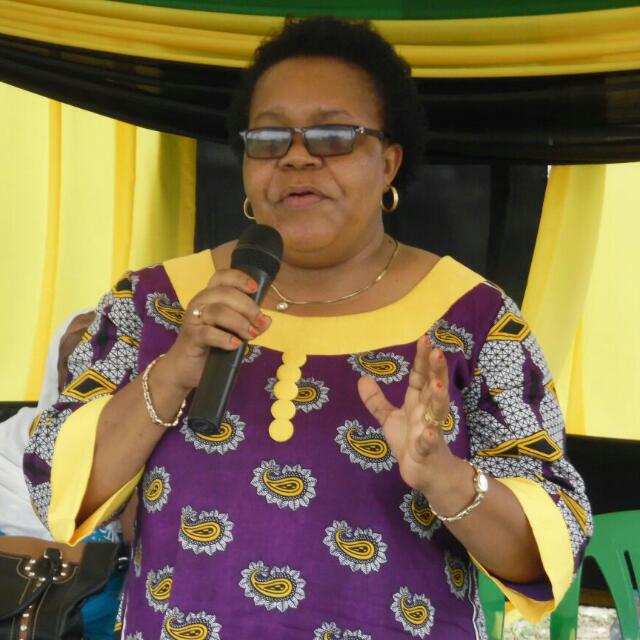
18 November, 2019
Human Rights Defender of the Month: Gladness Hemedi Munuo
Gladness Hemedi Munuo is a journalist and an award-winning gender activist from Tanzania, with more than 20 years of human rights and media experience. “Shrinking space and crackdown on media causes huge problems in Tanzania – to me it’s a thing that needs serious and immediate action,” she stresses.
Gladness holds a bachelor’s degree in social arts and a master’s degree in public health, as well as a diploma in journalism. Her extensive academic and professional work experience, in addition to her large motivation to improve the situation for women and children, alongside free speech and press freedom, makes her an essential voice in Tanzanian civil society.
Her work was recognised by GenderLinks who awarded her the Voice and Change Drivers 2019 Award. Having witnessed the many challenges women face while pursuing justice, especially in cases related to sexual and gender-based violence (SGBV), she started the organisation Crisis Resolving Centre (CRC) (Kituo cha Usuluhishi in Kiswahili). The organisation focuses on giving women free legal remedy, as well as educating citizens – both women and men – about women’s rights.
Having practiced journalism for 20 years, she utilises her strength in advocacy and communication when conducting awareness raising activities about SGBV. “I have trained hundreds of journalists who later go out to educate millions of people through mass media in Tanzania. Also, my work at the CRC has supported and empowered many women,” Gladness emphasises.
“I have trained hundreds of journalists who later go out to educate millions of people through mass media in Tanzania. Also, my work at the CRC has supported and empowered many women”
However, promoting women’s rights in a patriarchal system is not a walk in the park. “In some areas there is a conflict between gender issues and our African culture. That is one of the big challenges I face – culture is a big problem […] We have bad culture and we have good culture, but bad culture tends to accommodate more people.” However, she also points to some improvements, especially in rural areas, stating that “[i]t is very difficult to work with those [women living] in a patriarchal system, but slowly, slowly they are coming up.”
Logistical issues, often due to scarce financial resources, is another hurdle, in addition to lack of data and documentation about gender issues, especially SGBV. “The main victims are in the rural areas and getting proper data and records of such cases is also a great challenge,” she states. Simplified materials to talk about the issues affecting women would be of great help,” she points out, as “[i]t would make it easier for people to understand when their rights are being violated.”
“We have bad culture and we have good culture, but bad culture tends to accommodate more people.”
Gladness is of the opinion that regional and international actors should do more to support Tanzanian human rights defenders (HRDs). “We don’t have support for journalists. They cannot do investigative journalism, due to lack of funds, skills, and the dangerous environment […] We have a Swahili saying: if you do not protect the broken wall, then the whole wall will fall down” (usipoziba ufa utajenga ukuta in Kiswahili).
Gladness was part of DefendDefenders’ delegation at the 65th session of the African Commission on Human and Peoples’ Rights (ACHPR) in Banjul, The Gambia, where she together with DefendDefenders highlighted the human rights challenges in Tanzania, and the need to ensure the protection of Tanzanian HRDs.
See also DefendDefenders’ report Spreading Fear, Asserting Control: Tanzania’s assault on civic space.



